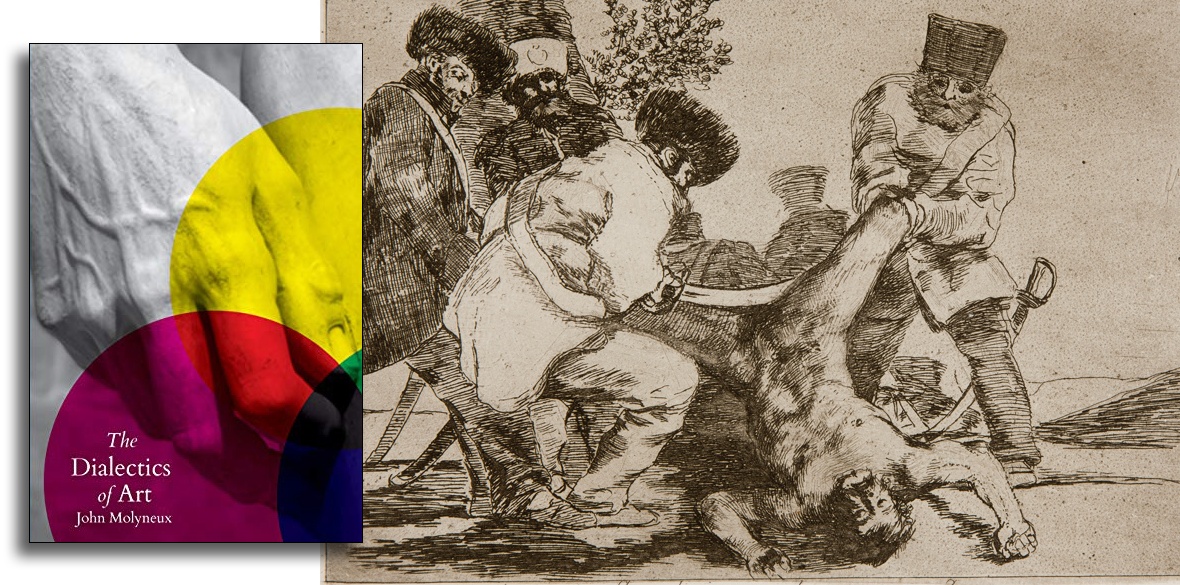This is the last article you can read this month
You can read more article this month
You can read more articles this month
Sorry your limit is up for this month
Reset on:
Please help support the Morning Star by subscribing here
The Dialectics of Art
by John Molyneux
(Haymarket Books, £17.99)
GROUNDED in a solidly Marxist perspective, John Molyneux’s book is a very fine contribution to writing on art.
Carefully argued chapters on what art is — how we evaluate it, how it changes and develops and the dialectical nature of modernism — are illustrated by case studies of artists including Michelangelo, Rembrandt, Tracey Emin, Jackson Pollock, Andy Warhol and others.
The central strength of these theoretical and case-study strands is the recognition of the dialectical tensions that are generated and expressed in artworks which are produced in class-divided societies like our own.
On the one hand, the content, production and consumption of visual art has historically been dominated by the rich and powerful as part of their apparatus of ideological control. On the other, artists like Rembrandt, Goya, Kahlo, Picasso, Emin and Banksy have often ignored, subverted or openly rebelled against that domination.
They have produced works that express and protest at the suffering involved in exploitation and that offer comfort, imagine alternatives and inspire us to challenge and change that domination and oppression.
Although his work is peppered by cultural references, Marx never set down a systematic theory of art but, drawing on his theory of alienation and other thinkers like John Berger, Molyneux develops and cogently outlines a powerful argument.
It is that creative labour is a particularly direct, unmediated and unalienated form of labour, with an intimate unity of form and content which can resist and rebel against the alienating and commodifying forces of capitalist society. Edvard Munch’s The Scream is an expression of the alienation and psychological stress of social relations under capitalism and is itself a scream of protest against capitalism.
Molyneux is also careful to preserve Marx and Engels’s appreciation of the creativity involved on works of art: they are imaginative and critical responses to capitalism, not mechanical reflections or expressions of the economic base.
Rembrandt painted flattering portraits of emerging Dutch capitalists in the Dutch Republic but also sympathetic etchings of poor people and other casualties of early capitalism. Goya was both a Spanish court painter and a devastatingly effective critic of war.
Andy Warhol both glamourises and criticises the culture of celebrity, consumerism and commodification that postwar capitalism generated, while Tracey Emin’s My Bed is a protest at the oppressive, gendered social roles of women and a challenge to the ordered, hierarchical ethos of art galleries and the art world.
She has more recently moved away from socially relevant art and – like many modern artists and film-makers – produced vapid and stunningly meaningless spectacles. Damien Hirst and Banksy show similar contradictions in their careers.
Molyneux sketches the generally democratising trajectory of modern art in its materials, subject matter and the way it is presented and he foresees how the collective attempt to overcome capitalism and imagine and create a new and better world will mean all production will share in the creative character of artistic production.
His book is a much-needed antidote to what Molyneux calls “the wonderful nonsense” of so much writing on art. He shows humility, caution and care in the presentation of his argument and his appreciations of some key artists and key artworks are deeply insightful.
Molyneux doesn’t presume to write about cultural activities other than visual art but his dialectical approach, firmly rooted in Marx’s historical materialism, works equally well not only for literature, film, the theatre and music but other areas of cultural activity as well.











